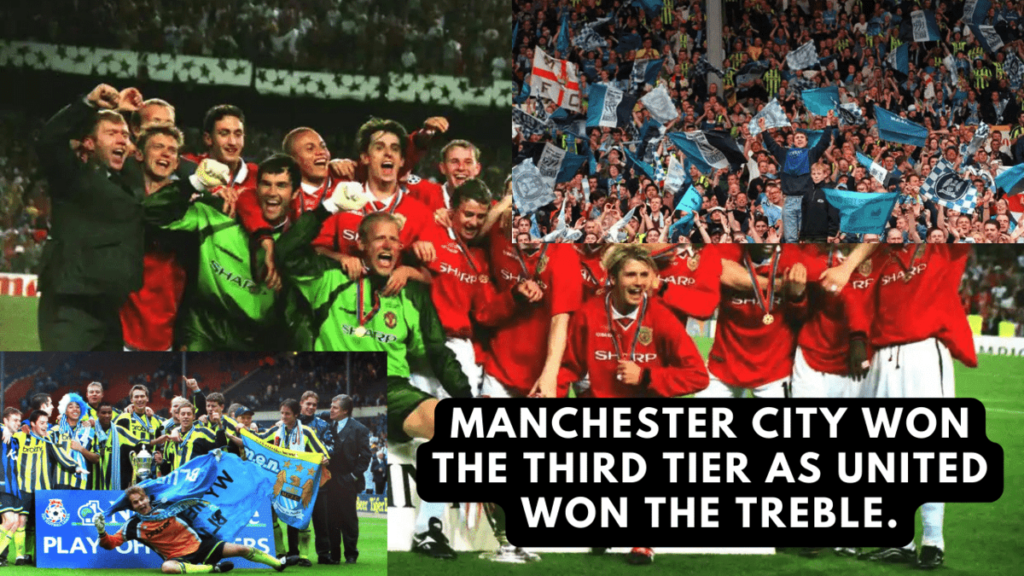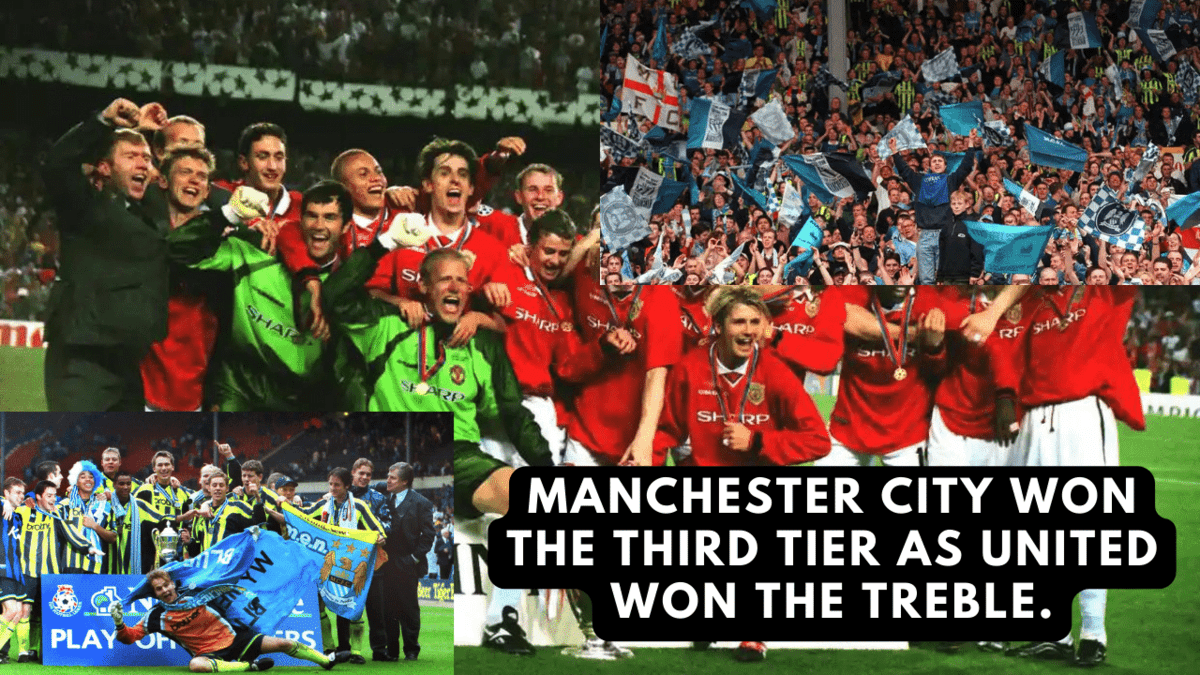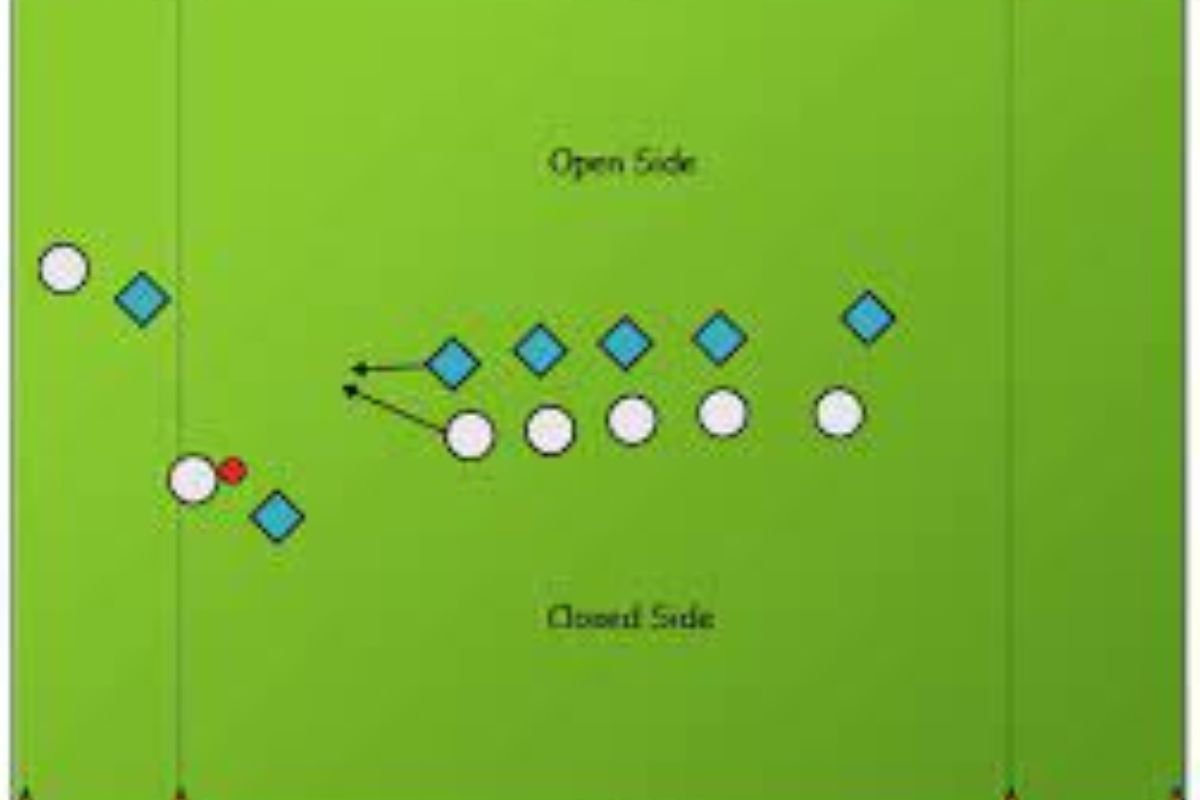Manchester City won
In May of 1999, Manchester City won a championship after scoring two goals in the nick of time to win the game. Does this ring a bell?
It is late May of 1999, and the final game of a challenging and hard season is about to begin. A final that appeared to be hopeless was saved by the side from Manchester, who scored two goals in a highly implausible situation. Because the team was trailing with only a few minutes left to play, the scores caused wild celebrations and elevated the goal scorers to iconic status among the fans .Manchester City won
Despite the passage of twenty-four years, this championship game is still a pivotal point in the club’s past. However, the game was played not in Barcelona but at Wembley, and the opponents were not Bayern Munich but rather a team from Kent that had never reached higher than the third division of English football Manchester City won. It was the championship match of the promotion playoffs between Manchester City and Gillingham, and the winner would earn promotion from the third level to the second level.
The previous year, City had suffered an embarrassing demotion from the First Division, now known as the Championship, and they were competing to win back their spot in the league Manchester City won. They entered the Football League in 1892. Therefore this was their first time playing in the third division; hence, there was an understandable sense of hopelessness regarding their predicament. Needed to succeed in being promoted on their first attempt.

Gillingham, led by Tony Pulis, entered the game’s last minute leading 2-0 and getting ready to celebrate promotion to the second level for the first time in their 106-year history Manchester City won. The Gills appeared to have perfectly timed their winning drive, as they scored two goals in the preceding ten minutes to put themselves in a winning position. Even when City’s Kevin Horlock scored an equalizer in the 90th minute, it appeared to be merely a consolation goal for them Manchester City won.
Vince Bartram, the goalkeeper for Gillingham, was named the man of the match over the stadium’s public address system, and that seemed to be the cue for many City fans to head for the exits, resigned to spending another year in the lower levels of English football. But Paul Dickov scored an equalizing goal in the fifth minute of added time, beating Bartram with a shot that tied the score Manchester City won.
The relationship between the striker and the goalkeeper made for a delicious subplot. The fact that Bartram had served as Dickov’s best man at his wedding and that Dickov had served as Bartram’s best man at his wedding made this a very moving moment for both men Manchester City won. The outcome of this championship match was no longer in doubt after City had tied the score in the dying seconds. An incredible crescendo was reached when, after an additional 30 minutes of regulation and overtime in which neither team scored, City prevailed via penalty kicks (even though Dickov missed his shot). The nightclub was gaining popularity once more.
This incredible turnaround in the dying minutes of the championship playoff game helped pave the path for the team to have more success in the years to come. It was possible that City’s failure to achieve promotion that year would have resulted in a significant setback, if not a fatal one Manchester City won. Dickov is still revered for his goal, which was the impetus for transformation over the following two decades. Many City fans consider this victory to be the one that turned everything around for the club, and Dickov’s strike was the one that turned everything around.
It’s possible that none of the seven Premier League titles won since 2012 would have been possible without that victory at Wembley; consequently, Roberto Mancini, Manuel Pellegrini, and Pep Guardiola all owe Dickov a debt of gratitude Manchester City won.
Must Check Driving Smart: Your Roadmap to the Cheapest Auto Insurance Quote
Four days earlier, United had scored two improbable late goals to win the Champions League final against Bayern Munich, completing the first treble by an English club. Bayern Munich was the team United had defeated to win the title. City’s triumph in the championship game of the playoffs also contributed to the fact that they could experience some degree of redemption.
Climbing out of the third division does not come near to the glamor of winning the primary Championship in European football. Still, it was perhaps just as crucial in City’s development.
In the run-up to those championship games, the disparity in fortunes between the two clubs could not have been more pronounced. City had finished significantly behind runaway champions Fulham and five points behind second-placed Walsall. As a result, they could not secure one of the automatic promotion positions.
The day before Manchester United won their 12th league title by defeating Tottenham by a score of 2-1 at Old Trafford in front of a crowd of 55,189 supporters, City had traveled to Springfield Park to draw 1-1 with Wigan Athletic in the first leg of a playoff semi-final in front of a crowd of only 6,672 people.
Also, Check The Nuggets win Game 1 against Heat behind Imperious Jokić.
City won the second leg of the semi-final 1-0 to push over Wigan and ensure their trip to Wembley, where Alex Ferguson’s men would beat Newcastle 2-0 in the FA Cup final and take up their second trophy of the season three days later. City’s victory over Wigan allowed them to advance to Wembley.
The next week, Manchester United won the Champions League and completed the treble courtesy of Teddy Sheringham and Ole Gunnar Solskjaer’s late double at Camp Nou. In doing so, United became the first team to win all three major club competitions.
There was a lot of pressure on City to respond. It was possible that another year at this dismal level would have been catastrophic. After falling down the divisions and being entrenched in the lower levels, many once-great clubs have had difficulty regaining their past glory and have been unsuccessful.
It is possible that Manchester City, as we know it now, would not have had the opportunity to rebuild and lay the groundwork for their recent supremacy, which has the potential to culminate in only the second treble in the history of English football, if it were not for the events that transpired during those few, crazy minutes at Wembley on May 30, 1999.



